Vera Drew is Not Joking Around with ‘The People’s Joker’
Vera Drew's audacious trans-themed spoof "The People's Joker" finally hits screens, and she's as shocked as anyone.

“It really started just as a Twitter joke,” recalls filmmaker Vera Drew, of her boldly creative comic book movie spoof The People’s Joker, a passion project largely inspired by the Oscar-winning 2019 Joker starring Joaquin Phoenix.
“My friend Bri [LeRose] just commissioned me to re-edit Todd Phillips’ Joker, and I started doing that,” Drew tells Metro Weekly. “And then over the course of a few months, it grew in scope.”
As Drew involved other artists in assembling a kaleidoscopic, mixed media take on Gotham’s Clown Prince of Crime, what started as a joke between friends eventually gained unstoppable momentum. “And as that started happening,” says Drew, “it was just like, ‘Okay, no, let’s just make an original movie here. Let’s just make a parody.'”
But The People’s Joker is more than just a parody. A masterpiece of individual expression and artistic collaboration, the film, co-written with LeRose, draws on Drew’s own life to tell the story of a queer kid from Smallville who moves to Gotham to get into sketch comedy, and finds a community of fellow wannabe comics — including Mr. Freeze, Poison Ivy, Catwoman, and the Penguin, who’s surprisingly sympathetic to queer issues.
Portrayed by Drew, the character also discovers her trans identity, and, ultimately, emerges as Joker the Harlequin.
Had it been up to the legal teams at Warner Bros. Discovery and DC Comics, nothing of The People’s Joker would have emerged to the public. But Drew and her team stood up for their rights as artists for fair use of WBD’s copyrighted material, and LGTBQ+ distributor Altered Innocence stepped up to take any potential heat.

METRO WEEKLY: First of all, congratulations on the movie’s release. Was there any moment when you were concerned that it might not come out, and you had to think, “What am I going to do with this?”
VERA DREW: Yeah, I think there was never just one moment of that. It was like on and off, all last year pretty much. And it’s interesting because I had a lot of people — really well-meaning people — try to convince me to do a self-distribution model with the film. But that just sounded so exhausting.
And what was exhausting about it was just the actual theatrical desire for the film, like the amount of theaters every week that would send us messages that were, “Hey, I know you’re in limbo right now or whatever, but do you want to play the movie here?”
That kind of just kept me going, and kept me on this path of, “Okay, I guess our momentum is kind of killed right now, but we’re still out there, and people are still talking about us in this kind of underground sense, which is cool. But also frustrating, when you feel like you’ve been underground for long enough. So, yeah, I’m really fucking stoked right now.
It certainly feels like, I don’t know, it just feels like I’m dreaming. I kind of am unable to really emotionally process what’s happening with the film right now. Just the fact that it’s even playing in theaters kind of breaks my brain.
MW: Something I only realized watching your movie is that, even though Todd Phillips’ Joker is about a comedian, I don’t think that movie attempted to comment much on standup. Something your movie does extremely well is the commentary on standup, and the comedian-to-SNL pipeline. All that stuff was really spot on. I know you edit video for comedians and comedy creators. What have been your experiences in that world? Did you do standup?
VERA DREW: I did. I only ever really did standup for about like 4 or 5 years, which I’ve heard standup comics say, “Well, then you didn’t do it.” One of the many stupid things that standup comedians say. They gatekeep time. But, yeah, I was more of an improv and sketch comedy person. I started really, really young. I started when I was like 13, at Chicago’s Second City. Now they have youth improv programs there and stuff all the time. But I was really kind of a part of the first iterations of that. I got introduced to comedy at such a young age, and kind of in this way that was just really beautiful, because it was just the artistic [side].
I, of course, as a kid wanted to be on SNL because I was doing sketch comedy, but it was just the pure art of it. And it was saving my life, too, because I was, believe it or not, bullied a lot. But going to the city, because I grew up in the suburbs of Chicago, and taking the train to the city every weekend, that was the space where I could just be me and meet people, too, that just weren’t like everybody else in my hometown.
So I knew queer people at a pretty young age. I definitely got a way more diverse experience than a lot of kids who grow up in the south Chicago suburbs usually get, particularly the one I’m from. And comedy was just this pure space for me for that, and for exploring identity. The brief period that I did do standup, I would only ever do it in drag. That was when I was a “straight man.” I was just doing it because it was like, if you’re doing comedy and you’re wearing a dress, it kind of softens the impact of wearing a dress for the first time.
So, it was a space for me where I could really grow, and figure out who I was. But I also think at a certain point, it just kind of became like cycles of self-deprecation. It’s very easy to turn little comedy communities into toxic repeats of your entire family system. And that’s kind of devastating, because it’s always kind of coming from this place of good intentions.
I feel like that’s what The People’s Joker is also about: when you’re a queer artist, or, forget even queer, just when you’re an artist who makes stuff that isn’t “mainstream,” you always have to carve out your own little niche, and your own little community.
And, a lot of times, artists like that are kind of running away from something, whether it’s an overbearing mother or a toxic relationship or whatever. And it can be devastating when you start this community, and then you look around and you’re like, “Oh, wow, cool. I just recreated all these mommies and daddies around me.” I think that was kind of what I wanted to sort of unpack in The People’s Joker.
MW: Something funny about that space in the movie, is the idea that comedians are all basically supervillains in the making, or are shitty and miserable people. Do you believe all comedians, or most, are shitty and miserable people? And does it feel the same way in queer comedy circles?
VERA DREW: [Laughs.] I mean, well, I think when Bri and I wrote the movie, we were a lot angrier about comedy and, specifically, our place in it, just because we both had worked for years at [Tim and Eric’s] Abso Lutely [Productions] and Adult Swim, and it was just like, “How the fuck do we get our own shows here?” Like, what are you supposed to do?
So I think there was a lot of frustration there, and that’s why I made a lot of pretty bold statements about that stuff. But I really do think comedy — it’s always kind of trite to talk about, but it really does come from a place of tragedy, and I think most people who — well, pretty much everybody — no, I’m just going to say it, everybody who does comedy, they arrived at comedy because they were othered in a way. I really do think that. I don’t think anybody gets into comedy just because they’re like a good, joyful person who’s happy.

I just think comedians take themselves way too seriously now. I think we’re at the breaking point of it, as far as I’m concerned. Because comedy has always been pretentious, and comedians have always kind of been treated as philosopher kings. But to this degree now, where it’s so obviously causing harm, and influencing policy change.
I think the fact that Netflix continues to platform people like Chappelle — who are funny people, like, he’s really, really funny. And then he also just sets aside 20 minutes in his act just to fucking say TERF propaganda. That to me is why we need to start, not necessarily keeping people from being able to say stuff, but calling fucking comedians out, and taking the piss out of them.
So I think that’s why I made some pretty bold statements about comedians as a whole. The one that I definitely do stand on is nobody should ever date a comedian because that is just a recipe for disaster. I can speak from experience, and it’s a rule that I keep breaking.
MW: I love that the soundtrack includes a purple-inspired song, “Party Woman.” Will any of the songs be released?
VERA DREW: The end credits song will be released as a single. That’s a song called “Natman and Robyn,” that was composed and performed and written by two artists that I love, Left at London, and Robyn Kim, and they have a musical group called WOW OK.
I went to them because they’re just cool trans people who make art that is very similar to mine, and come from the same place of earnestness and edginess. And it just kind of made sense. I didn’t really give them that much to go off of. I was like, “I think it would just be cool for the end credits song to really just thematically sum up what the movie’s saying, and however you guys see it, let’s just do that.”
They wrote this song that, when I hear it, it’s like they made this song for me, right now. I don’t know how to describe it. Because there’s this whole part at the end where, lyrically, it’s talking about how you make a piece of art, and then you put it out there, and some people are going to love it, obsessive amounts, and some people are going to think…whatever.
I’m not going to say what the negative reviews for this movie are, because I think if I say them, you’ll know which ones they are because they’re always very specific. So I won’t call those people out. But it’s kind of about how being perceived on both of those extremes doesn’t always feel good.
It’s this reminder to me when I hear that song, that I make art to understand myself, not to be understood. I make it to grow as a person, and to heal and to figure my shit out. So it’s so cool when I get positive feedback and stuff, but then if other people don’t get it, like, who fucking cares? I got to make a movie and it’s super colorful and gay.
The People’s Joker is playing in select theaters, including Alamo Drafthouse at Bryant Street and Crystal Street. Visit www.drafthouse.com or www.fandango.com.
Support Metro Weekly’s Journalism
These are challenging times for news organizations. And yet it’s crucial we stay active and provide vital resources and information to both our local readers and the world. So won’t you please take a moment and consider supporting Metro Weekly with a membership? For as little as $5 a month, you can help ensure Metro Weekly magazine and MetroWeekly.com remain free, viable resources as we provide the best, most diverse, culturally-resonant LGBTQ coverage in both the D.C. region and around the world. Memberships come with exclusive perks and discounts, your own personal digital delivery of each week’s magazine (and an archive), access to our Member's Lounge when it launches this fall, and exclusive members-only items like Metro Weekly Membership Mugs and Tote Bags! Check out all our membership levels here and please join us today!




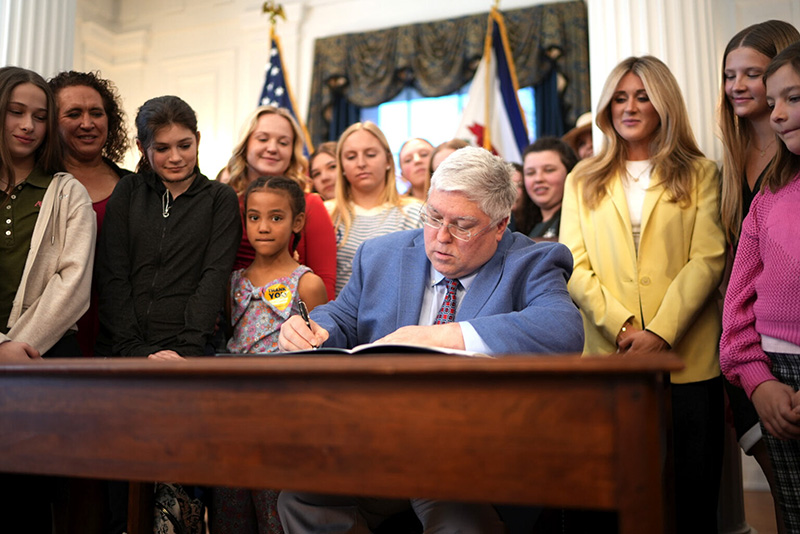

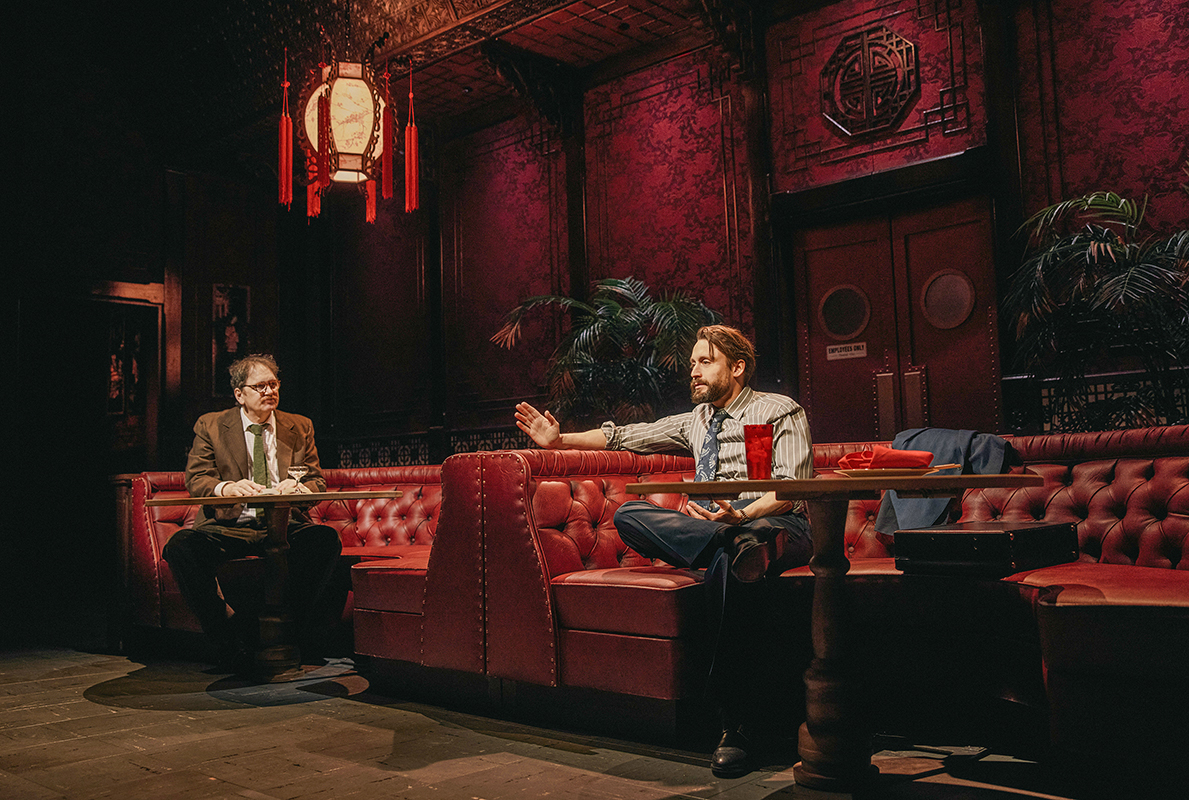
















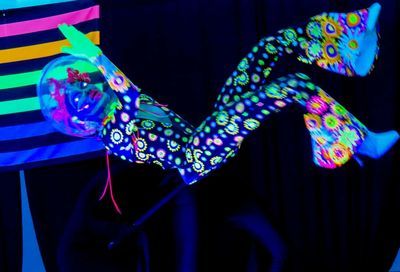
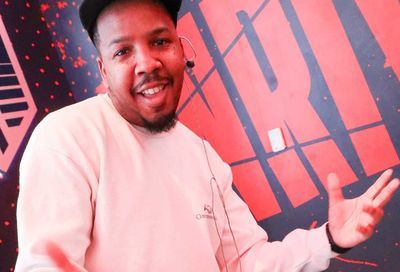
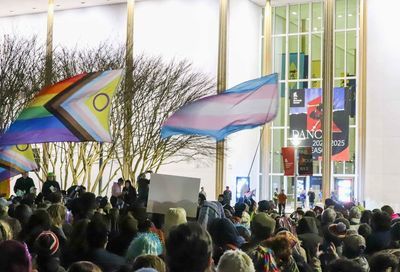
You must be logged in to post a comment.